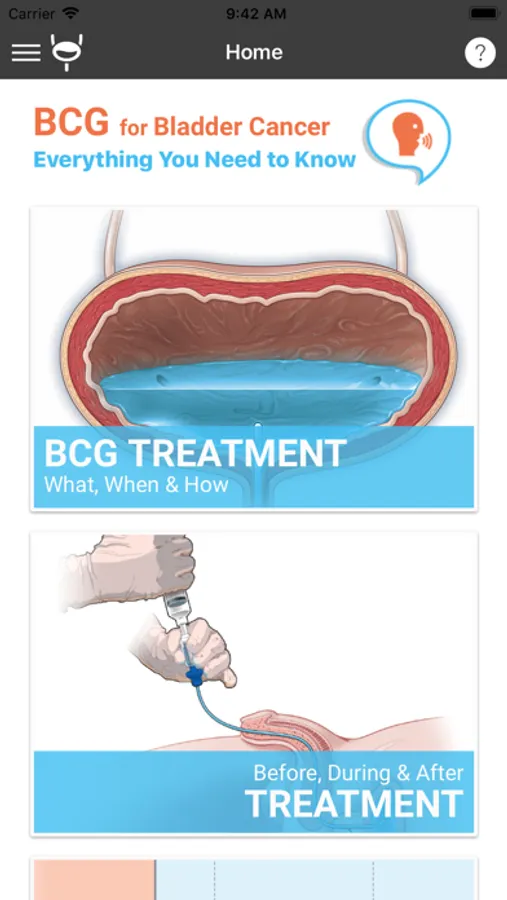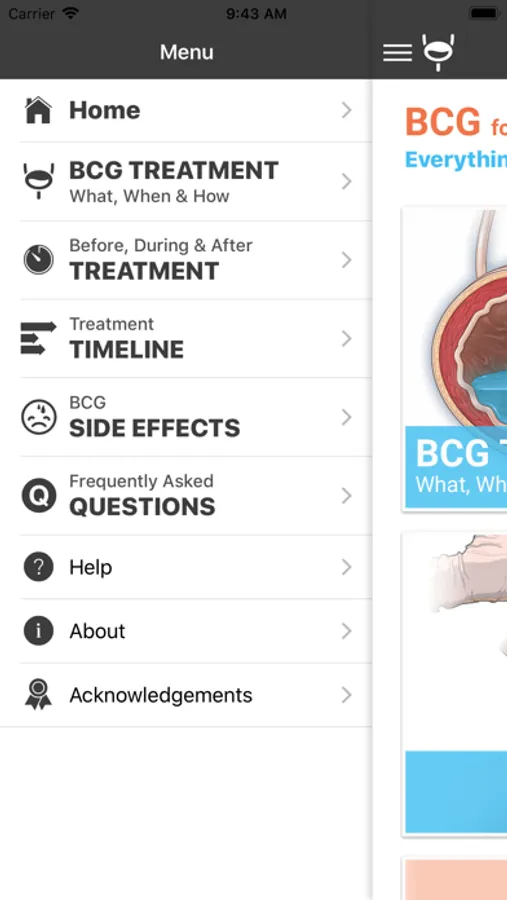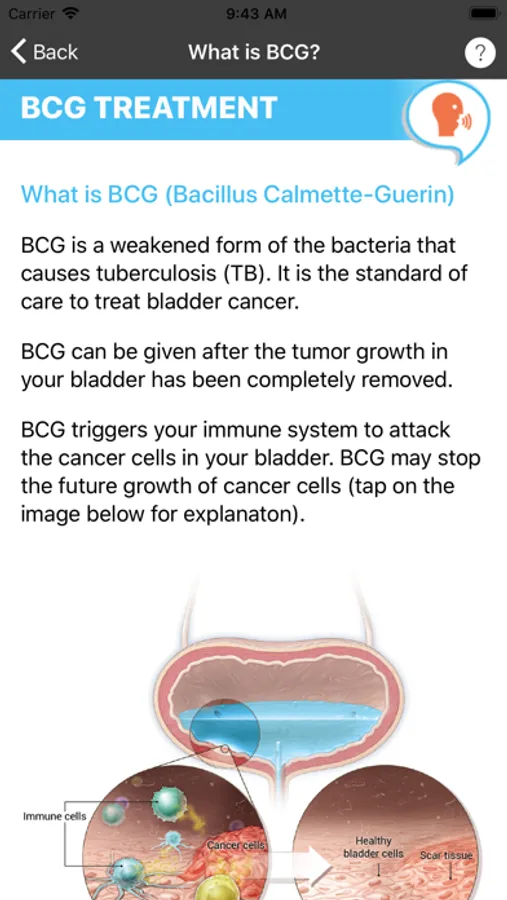About BCG Treatment
This application provides patients a simplified, trusted resource for self-education.
BCG (i.e., Bacillus Calmette-Gue´rin) is the recommended course of treatment for intermediate and high-risk bladder cancer patients, however, this treatment is associated with high toxicity, and compliance with treatment and follow-up recommendations may vary depending on several patient-specific factors. Patient education on the subject may prevent toxicity and adverse events. Composed, educated patients are better able to participate in erudite negotiations about their healthcare.
Self-education tools provide the key to empowering patients with the information that will help them reduce psychological distress and emotional burden, in addition to avoiding health complications resulting from non-compliance with treatment recommendations or misinformation regarding side effects of treatment. This will be extremely useful for patients with chronic disease types with treatments where risk of incidental non-compliance or side-effects from treatment run high. Access to simplified, highly visual healthcare provider and patient-approved education materials from mobile devices provides opportunities for self-education between clinical consultations.
This application was designed and tested by a multi-disciplinary team of physicians, nurses, researchers, patient advocates, medical illustrators, human factors engineers, patient education experts, software engineers, and patients. It has been honed from the latest medical information and approved by experts in the field. It has been simplified to a highly-visual, interactive tool, at a sixth-grade reading level.
BCG (i.e., Bacillus Calmette-Gue´rin) is the recommended course of treatment for intermediate and high-risk bladder cancer patients, however, this treatment is associated with high toxicity, and compliance with treatment and follow-up recommendations may vary depending on several patient-specific factors. Patient education on the subject may prevent toxicity and adverse events. Composed, educated patients are better able to participate in erudite negotiations about their healthcare.
Self-education tools provide the key to empowering patients with the information that will help them reduce psychological distress and emotional burden, in addition to avoiding health complications resulting from non-compliance with treatment recommendations or misinformation regarding side effects of treatment. This will be extremely useful for patients with chronic disease types with treatments where risk of incidental non-compliance or side-effects from treatment run high. Access to simplified, highly visual healthcare provider and patient-approved education materials from mobile devices provides opportunities for self-education between clinical consultations.
This application was designed and tested by a multi-disciplinary team of physicians, nurses, researchers, patient advocates, medical illustrators, human factors engineers, patient education experts, software engineers, and patients. It has been honed from the latest medical information and approved by experts in the field. It has been simplified to a highly-visual, interactive tool, at a sixth-grade reading level.


